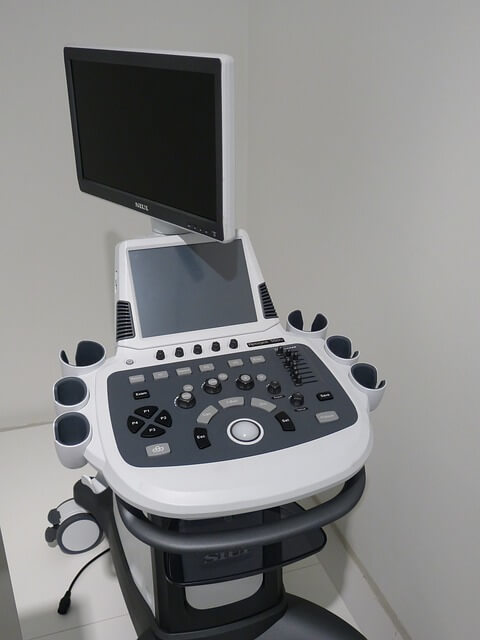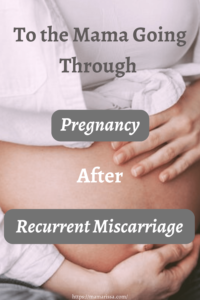Most mamas-to-be have a hard time saying no to any extra ultrasounds a doctor or midwife offers them. There is nothing quite as special as catching a glimpse of that tiny little baby who has not yet seen the world.
Turning down another exciting opportunity to see your child in utero would be like turning down a free ticket to a Disney World park. But what if that free ticket comes with an increased risk of complications for your little one?

Are There Risks with Prenatal Ultrasounds?
The issue of how safe prenatal ultrasounds are for a developing baby is currently being debated. There have been studies done which have shown no known negative results to having these scans done, but there have also been studies indicating they may cause or contribute to various disorders and problems for the child.
Let’s take a look at some of the studies that have found adverse effects from ultrasound use during pregnancy.
Autism
Autism is a hot topic these days with the sharp increase in children developing this condition in recent years. Everyone is trying to find the cause, so naturally we question the role of prenatal exposure to ultrasound waves.
A study published in JAMA (Journal of the American Medical Association) Pediatrics found that children with autism were exposed to deeper penetrating ultrasound in utero versus children without the disorder, although neither the number nor length of ultrasounds seemed to be related to a child developing an ASD (Autism Spectrum Disorder).
Likewise, another study determined ultrasound exposure to boys during the first trimester in utero resulted in more severe ASD symptoms than other boys with an ASD who did not receive ultrasound exposure in the first trimester.
However limited these studies may be, this must be very upsetting information for the mama of a child with autism.
Although this certainly is not the one main cause of autism, I’m sure any mom of an autistic child would gladly turn back the hands of time and forgo all ultrasounds if there were a possibility of reducing the likelihood of her child having an ASD.
Other Areas of Mental Development
Besides autism, there are also other developmental concerns with the issue of exposing a tiny human to ultrasound.

A study published in the Canadian Medical Association Journal found that children with delayed speech received more ultrasound exposure in the womb than children without delayed speech, indicating that ultrasound use may play a role in altering the brain as it is developing.
There is also research indicating there is an increase in left-handedness among boys who were exposed to ultrasound in utero, which also reveals that ultrasound is somehow messing with the prenatal brain.
Physical Development
In addition to mental and psychological development, questions have been raised about how a baby’s physical development might be affected by these scans.
Babies in this study who were subjected to multiple ultrasounds compared with babies who were exposed to only one ultrasound (unless more were medically necessary) were born shorter in length. The study noted this appeared to be due to an effect on bone growth.
However, in a follow-up study, this difference in size was shown to diminish as the children got older.
Still, it is known that bone absorbs more ultrasound waves than other tissues because it has more density. Therefore, it is concerning that there was a noticeable effect on bone growth as a result of more ultrasound exposure.
Miscarriage and Preterm Labor
Personally, having already had a miscarriage, I have thought (up until doing this research) that I would be too stressed to not have an early ultrasound during my next pregnancy just to make sure everything is okay.
Turns out, this decision fueled by fear can actually possibly cause miscarriage and preterm labor.
A study of over 9,000 pregnant mothers compared those who had a scan between 16 and 20 weeks with those who did not. There were 20 miscarriages after the 16 to 20 week timeframe in the group that had scans versus zero miscarriages in the group that did not have scans.
Another study evaluating outcomes for 57 women at risk for preterm labor revealed that the group of women who received weekly ultrasounds had double incidence of preterm labor than that of the group who received only a weekly cervical exam.

Isn’t it interesting that the “dangers” we seek medical intervention for can become the very dangers medical intervention leads us to? There is a fine line when deciding what is truly medically necessary versus what is just unnecessarily invasive.
Power Levels of Ultrasound Devices
The good and bad news is the effects ultrasound scans may have on the baby might be partially avoidable if the power levels are reduced on the machines.
One study notes that while the thermal index of ultrasound use during pregnancy has so far been mostly proven to be safe at a level of 1.0, the levels being reported to the FDA (Food and Drug Administration) are rising to as much as 1.5 and above.
The study concludes that knowledge of mechanical and thermal indices is essential for sonographers to safely use ultrasound equipment.
Another study, which enlisted 65 pregnant women, showed that reducing the thermal index for bone from 1.0 to 0.1 did not negatively effect the quality of ultrasounds during the second half of pregnancy.
A similar study of 42 women in their first trimester of pregnancy revealed similar findings, meaning that ultrasounds can be accurately used at power levels much lower than what is currently considered safe – if the ultrasound technicians know what they are doing.
However, of 143 ultrasound users surveyed in Israel, only 22.4% correctly answered a question about thermal index and only 4.9% could accurately describe mechanical index. Also, over 80% of users would not be able to locate the acoustic indices during ultrasound exams. These results were similar in an identical U.S. survey (Source).

This is disturbing. When I get an ultrasound done on my developing, unborn child, I assume the ultrasound tech knows what she’s doing and how to minimize the exposure of unnatural energy to my baby.
But this may not always be the case. As a matter of fact, ultrasonography training is not even required of obstetric professionals (Source)!
But as disturbing as this Information is, there has not yet been enough reliable information proving severe effects on unborn children from ultrasound use for any of the regulators to take action.
Despite the possible risks revealed in these studies, the overriding theme is that more research needs to be done with current ultrasound equipment (most studies predate the current increased power levels for ultrasound devices and use (Source)).
Are There Benefits to Prenatal Ultrasound?
Most people probably feel there are a lot of benefits to getting prenatal ultrasounds, and undeniably, there are some, even if they are more psychological in nature.
It puts a mama’s mind at ease to see her 8 week in-utero-child up on that screen and see that blinking healthy heartbeat, particularly if that mama has had traumatic pregnancy experiences in the past.
However, the actual health benefits to the baby of having ultrasound scans are lacking. There appears to be little, if any, improvement in the outcome for the baby when ultrasound is used, with some rare exceptions.
In this study, one positive effect that was noted of ultrasound use was a lower rate of inductions due to the ability to more accurately date the pregnancy.
It should be mentioned, though, that while it did not find any developmental delays for children who had been subjected to prenatal ultrasound, it also did not find ultrasounds to reduce negative outcomes for the baby.

In another study involving over 4,000 pregnant women in their third trimester, the medical management of each woman was evaluated to see if having doppler ultrasound led to better outcomes for the baby.
It found virtually no difference in neonatal outcomes between women who had ultrasounds and those who did not. The only difference noted was that having an ultrasound increased the number of future ultrasounds.
Although there was a difference in the number of neonatal deaths in those who received an ultrasound versus those who did not (3 vs. 9), the numbers were so small, they are statistically irrelevant.
So, in short, there may be some benefits to ultrasound use, but there is little reason to believe you will have a more successful pregnancy due to having one (or more).
What Do the Authorities Have to Say?
The FDA advises against casual use of ultrasound imaging for the purpose of creating keepsakes for the parents. While the FDA does not recognize any strong evidence proving ultrasounds result in negative outcomes, they assert that there may be risks to the unborn child which are not yet known.
The FDA recommends getting ultrasounds only when medically necessary.
ACOG (American College of Obstetrics and Gynecologists) also does not acknowledge any connections ultrasounds may have with negative fetal outcomes and echoes the FDA’s sentiments regarding ultrasound use during pregnancy, stating a condensed version of their recommendations.
With a similar conclusion, the WHO (World Health Organization) conducted an analysis of the available studies on prenatal ultrasound safety and concluded there are no reliable links between ultrasound use and compromises to children’s growth or development.
So the authorities have the mentality of “innocent until proven guilty” in the case against prenatal ultrasound use, and there simply has not been enough evidence to prove the role of ultrasounds in anything other than providing fuel to the pregnant woman’s insatiable desire to see her baby before birth.
What Does the Mama Have to Say?
Ultimately, this is your baby we’re talking about, so you have the right to decline an ultrasound if you feel it is unnecessary as well as the right to request one if you have specific concerns about your baby’s health.
My view has been altered as I have looked at these studies. I cannot speak with certainty for my future self, but I will be seriously considering forgoing the ultrasounds next time around.

There are often things that come up that necessitate an ultrasound for diagnostic purposes (like when you’re ten weeks along and begin to bleed or you’re in your third trimester and baby is measuring small), but I know I let my fear influence getting extra unnecessary ultrasounds when I was pregnant with my daughter.
I will definitely be more cautious with the next pregnancy.
What about you, Mama? What are your views on ultrasound use during pregnancy? Share them in the comments!











Leave a Reply